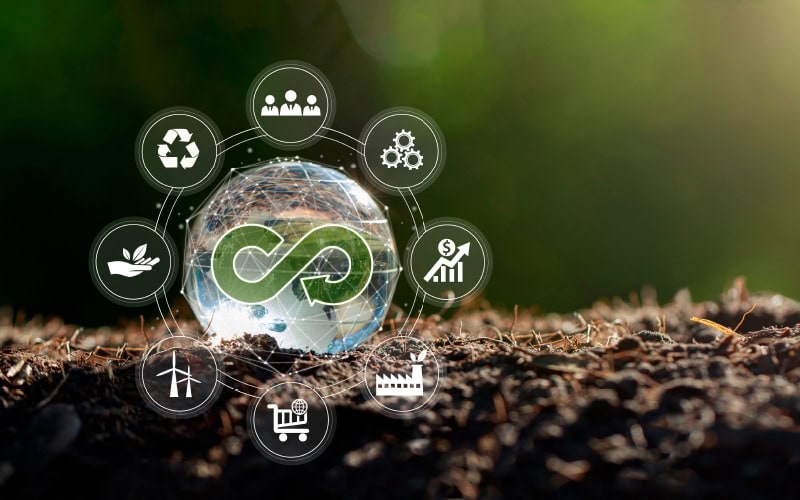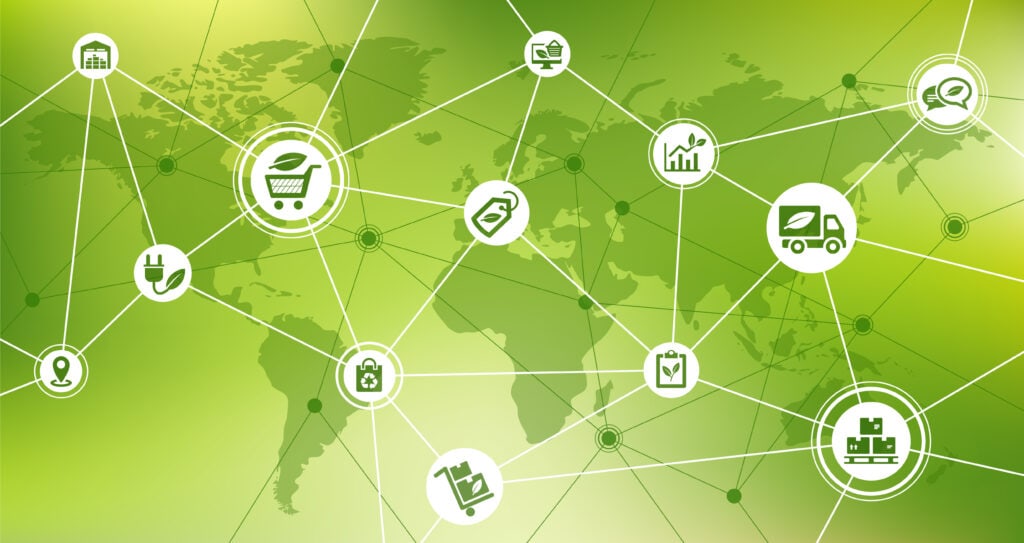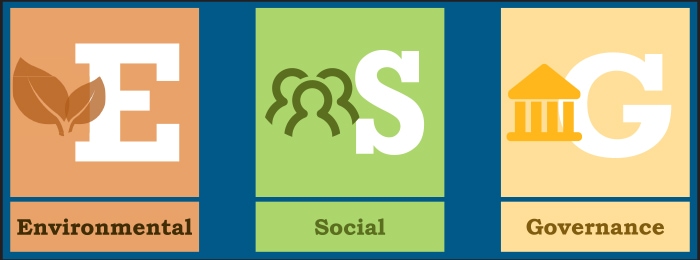Articles
Sustainability

Taking a Shine to Lab-Grown Diamonds
Marketed as an eco-friendly alternative to mined diamonds and offering more transparency, lab-grown diamonds are disrupting gemstone supply chains. Here’s some clarity:
Read More
EV Battery Investments Surge; Other Clean Energy News
DHL Group is expanding its charging infrastructure for electric trucks, thanks to a partnership with energy provider E.ON. The contract calls for E.ON to establish fast-charging infrastructure at DHL Group distribution centers. DHL service partners will also have access to the new charging infrastructure.
Read More
Circular Supply Chains Go Round and Round
Circular supply chains can be resilient and sustainable, and can help meet growing demand for environmentally friendly products. But shifting from linear to circular supply chains requires intense research to determine how best to reuse many materials, implement new technology and processes, optimize returned goods, and educate suppliers and customers on circularity’s challenges and benefits.
Read More
75 Green Supply Chain Partners
From 3PLs to air cargo carriers, and from ports to trucks, Inbound Logistics recognizes 75 supply chain visionaries who have come full circle by demonstrating their commitment to sustainability every day in every way.
Read More
Solving the Emissions Challenge
Companies need to gain a 360-degree view of their operations – including their Scope 3 impacts. When tackling emissions oversight, decision-makers must have tools in place that can help them capture, aggregate, and synthesize data in real-time to make any necessary tweaks to remain compliant.
Read More
Top 5 Aerospace Supply Chain Disruptions & Other Aerospace News
What are the key disruptions threatening the aerospace industry?
Read More
How to Achieve Foodservice Industry Sustainability Goals
Foodservice providers are reevaluating their operations with manufacturing and logistics playing a key role in driving sustainable change.
Read More
Carbon Output Is Spiking Amid Red Sea Supply Chain Crisis. What Are You Going to Do About It?
Another sustainability crisis is brewing in the global supply chain. Ongoing attacks on container ships in the Red Sea by Iran-backed Houthi rebels have caused major shipping companies and oil/gas firms to suspend shipments through the Suez Canal, one of the most active shipping routes in the world. As a result, vessels are forced on […]
Read More
5 Ways AI-Powered Logistics Maximize Eco Savings
Logistics providers increasingly turn to artificial intelligence to help operate sustainable and cost-effective supply chains.
Read More
ProTrans Provides a Sustainability Solution with Strategic Partnership
The strategic collaboration between ProTrans International and ClearFlame helped an automotive supplier reduce fossil fuel consumption, GHG emissions, and realize significant savings in fuel costs.
Read More
What’s the Key to Reaching Net Zero? Data Collection
Brands can reach their carbon goals by working better with suppliers. Let’s stop bombarding them with requests for information and instead encourage them to participate.
Read More
VERTICAL FOCUS: Electric Vehicles
Is the transition to an EV fleet right for your firm? Plus, the ABCs of electric vehicle batteries and delivery companies embrace EVs.
Read More
Supply Chains Champion AI and Other Technologies for Sustainability, Efficiency Gains
Key findings from the 2023 MHI Annual Report, “The Responsible Supply Chain,” highlight artificial intelligence as the most impactful technology for supply chains.
Read More
5 Ways to Design a Sustainable Supply Chain
Best-in-class organizations understand that sustainability drives long-term value for whatever form it takes within a business. Environmental, social, and governance (ESG) metrics are often used to determine how ethical and sustainable an organization is. Companies that deliver high ESG ratings consistently outperform the market in both the medium and long term, according to McKinsey research.
Read More
Greening the Last Mile
Last-mile delivery—the end stage of delivery from a pickup point or sortation center to a package’s final destination—is the most expensive aspect of the supply chain, from high fuel costs and address location to labor and first delivery failure. It also has the highest environmental impact of any other part of the supply chain.
Read More
GOOD QUESTION: What one supply chain adjustment would make the biggest impact on ESG?
Mature your data so you can use it like Google Maps. Sustained ESG marries continuous improvement with reporting and analysis—predicated on trustworthy data. Every company has a different origin, destination, and journey. Equip your organization with dependable navigation skills by building data intelligence and embedding a culture of data-driven action.
–Michael Ochi
Sr. Manager, Sustainability and Digital Manufacturing
QAD

Green Technology Partners
These solutions providers offer technology that empowers sustainable supply chains.
Read More
The Coming Wave of ESG Reporting Regulations: How Should Businesses Prepare?
The goal is to showcase ESG data that can withstand the scrutiny of not just regulators, but all stakeholders who will use it to make comparisons among companies in the way they do with financial data today. The time to take action is now.
Read More
5 Ways to Strengthen and Future-Proof Your Supply Chain
In recent years, environmental, social, and corporate governance (ESG) practices have become a critical aspect of any company’s reputation and success. Consumers don’t care just about what they are purchasing; they also care about how the product or service gets to them. For instance, an Edelman study shows 64% of consumers worldwide will buy or boycott a brand solely because of its position on a social or political issue.
Read More
Taking the Temperature on Sustainability
Many companies will continue to take sustainability seriously over the next 12 months. A recent Honeywell survey of 600 business leaders finds that 90% are pleased with their sustainability efforts over the prior 12 months, and 97% plan environmental, social, and corporate governance (ESG) budget increases in the next 12 months.
Read More